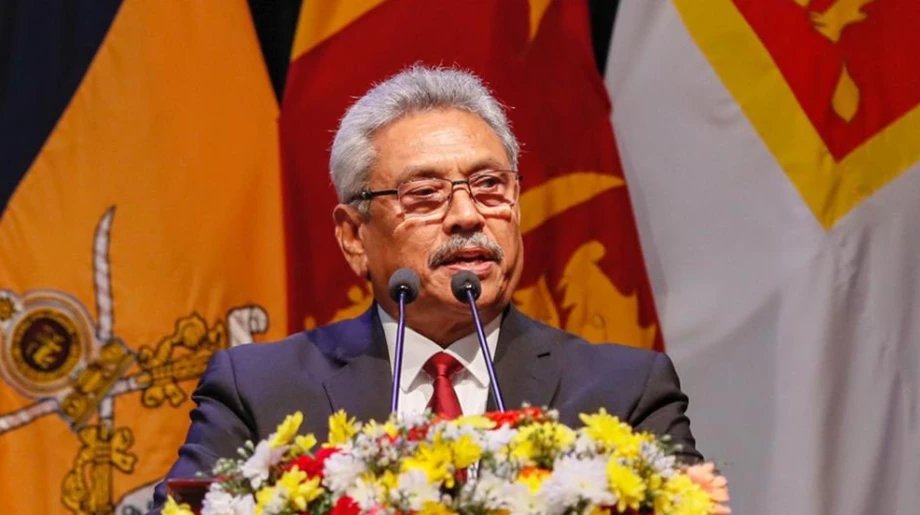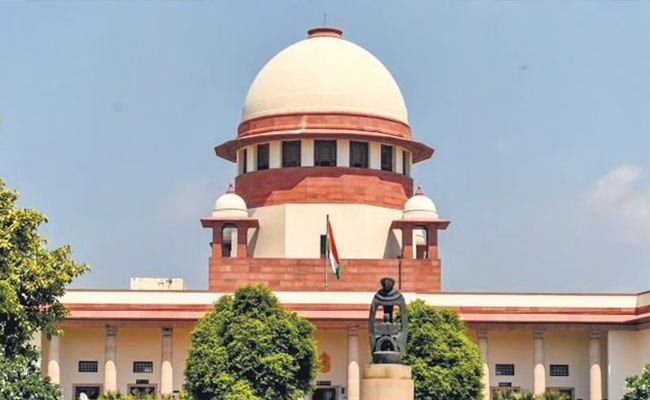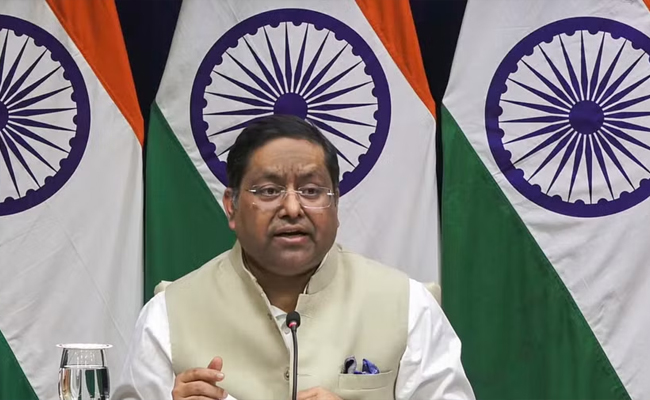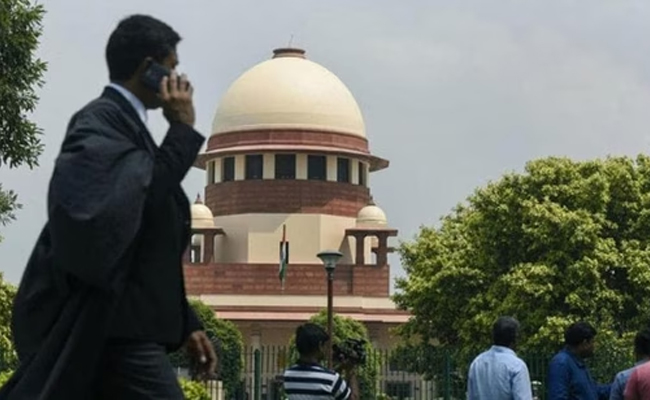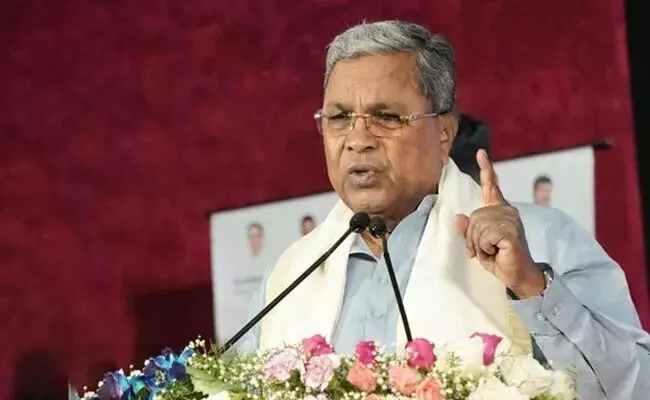Colombo, Sep 3: Sri Lanka's former president Gotabaya Rajapaksa was accorded a warm welcome as he returned to Colombo from Thailand amid tight security on late Friday, ending his 51-day self-imposed exile after fleeing abroad following months-long mass protests over the country's worst economic crisis.
Rajapaksa, 73, was festooned with flowers by a welcoming party of ministers and politicians as he disembarked at Colombo's Bandaranaike International Airport from Bangkok via Singapore.
The duty manager of the airport said that the former president arrived in the country at around 11.30 PM on Friday aboard a Singapore Airlines flight. After being welcomed by lawmakers of the ruling Sri Lanka Podujana Peramuna (SLPP) party, Rajapaksa left the airport in a motorcade heavily guarded by armed soldiers.
He will not be involved in politics despite many of the party members expecting him to start politics again, a source from the ruling SLPP told EconomyNext website after confirming Rajapaksa's arrival.
Many core party members are also against the former president coming into parliament using the national list. They do not want him to become the leader again. He has not committed any crimes. So, he has all the rights to return to the country and all privileges as the former president, the report quoted the source as saying.
Rajapaksa is given special security. The ousted leader, his wife Loma Rajapaksa and two bodyguards left the country on July 13 aboard an air force plane bound for the Maldives, before travelling to Singapore, where he officially resigned a day later. He then flew to Thailand two weeks later.
Rajapaksa had been staying in Thailand on a temporary visa and flew back home via Singapore. The ex-president travelled from Thailand to Singapore to take the flight as there are no direct flights between Bangkok and Colombo, sources said.
Rajapaksa will be living in a state bungalow close to Wijerama Mawatha in Colombo while a large security contingency will be deployed to maintain security in the area, the Daily Mirror newspaper reported.
Rajapaksa fled Sri Lanka to the Maldives on a Sri Lanka Airforce plane and then proceeded to Singapore, from where he sent in his resignation on July 14.
Later, he flew to Thailand, seeking temporary shelter. Thailand had said that Rajapaksa can stay in the country for 90 days because he is still a diplomatic passport holder.
However, Rajapaksa was not allowed to engage in political activities in Thailand. He was confined to a hotel and surrounded by security personnel.
Local media reports on August 19 quoted Rajapaksa's Sri Lanka Podujana Peramuna SLPP General Secretary Sagara Kariyawasam as saying that his party had requested the president to facilitate the former president's return and ensure security and necessary facilities".
After Rajapaksa was ousted, Sri Lanka's parliament elected then-Acting President and six-time former Prime Minister Ranil Wickremesinghe as the new Head of State.
Wickremesinghe has a mandate to serve out the rest of Rajapaksa's term, which ends in November 2024.
Rajapaksa, an ex-military officer, became president in November 2019.
Sri Lanka, a country of 22 million, is going through its worst economic crisis since its independence in 1948 which was triggered by a severe paucity of foreign exchange reserves.
The IMF on Thursday announced that it will provide Sri Lanka with a loan of about USD 2.9 billion over four years under a preliminary agreement to help the bankrupt island nation tide over its worst economic crisis and protect the livelihoods of the people.
The country is also expected to restructure its debt worth USD 29 billion, with Japan expected to coordinate with other creditor nations, including China on this issue.
In mid-April, Sri Lanka declared its international debt default due to the forex crisis. The country owes USD 51 billion in foreign debt, of which USD 28 billion must be paid by 2027.
There have been street protests in Sri Lanka against the government since early April due to its mishandling of the economic crisis.
A crippling shortage of foreign reserves has led to long queues for fuel, cooking gas, and other essentials while power cuts and soaring food prices have heaped misery on the people.
Let the Truth be known. If you read VB and like VB, please be a VB Supporter and Help us deliver the Truth to one and all.
New Delhi (PTI): Broken relationships, while emotionally distressing, do not automatically amount to abetment of suicide in the absence of intention leading to the criminal offence, the Supreme Court on Friday said.
The observations came from a bench of Justices Pankaj Mithal and Ujjal Bhuyan in a judgement, which overturned the conviction of one Kamaruddin Dastagir Sanadi by the Karnataka High Court for the offences of cheating and abetment of suicide under the IPC.
"This is a case of a broken relationship, not criminal conduct," the judgment said.
Sanadi was initially charged under Sections 417 (cheating), 306 (abetment of suicide), and 376 (rape) of the IPC.
While the trial court acquitted him of all the charges, the Karnataka High Court, on the state's appeal, convicted him of cheating and abetment of suicide, sentencing him to five years imprisonment and imposing Rs 25,000 in fine.
According to the FIR registered at the mother's instance, her 21-year-old daughter was in love with the accused for the past eight years and died by suicide in August, 2007, after he refused to keep his promise to marry.
Writing a 17-page judgement, Justice Mithal analysed the two dying declarations of the woman and noted that neither was there any allegation of a physical relationship between the couple nor there was any intentional act leading to the suicide.
The judgement therefore underlined broken relationships were emotionally distressing, but did not automatically amount to criminal offences.
"Even in cases where the victim dies by suicide, which may be as a result of cruelty meted out to her, the courts have always held that discord and differences in domestic life are quite common in society and that the commission of such an offence largely depends upon the mental state of the victim," said the apex court.
The court further said, "Surely, until and unless some guilty intention on the part of the accused is established, it is ordinarily not possible to convict him for an offence under Section 306 IPC.”
The judgement said there was no evidence to suggest that the man instigated or provoked the woman to die by suicide and underscored a mere refusal to marry, even after a long relationship, did not constitute abetment.

